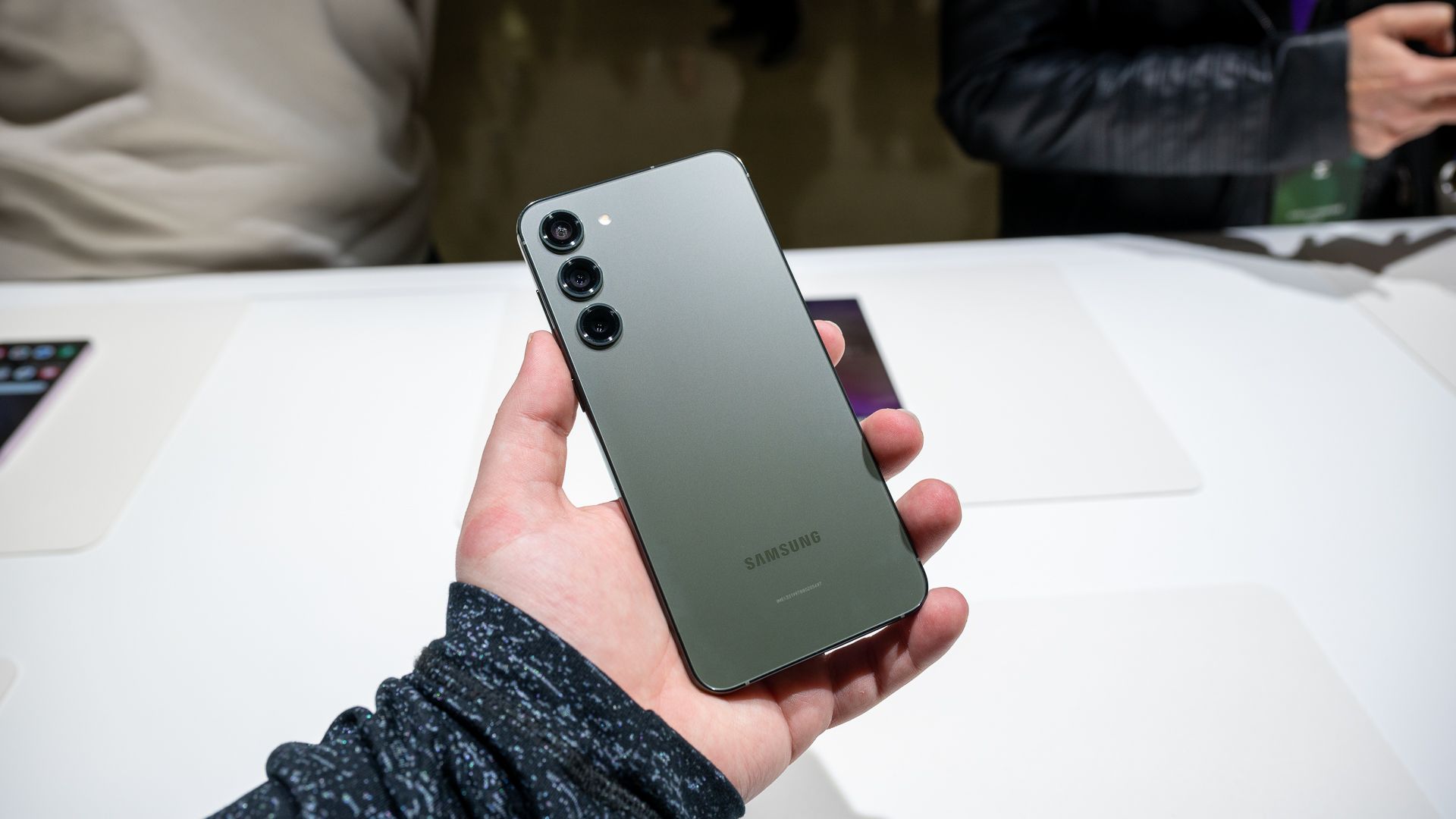
For anybody who plays video games on a regular basis, it’s long been a joke that when the mainstream media discusses gaming in any capacity, they’ll inevitably bring up how games are surprisingly popular, how it’s not just socially-challenged dweebs in their bedrooms anymore, and how video games are big business. Did you know that the gaming industry is bigger than Hollywood? Yes, Steve. Everyone knows that.
Despite this, the mainstream stereotype is largely still that gamers are socially-challenged dweebs who need to get out more. You’d think that people would know better by now — and in some cases, it’s difficult to imagine how they don’t know better — but here we are; still being told to take a shower, leave the house, touch grass, and expand our horizons beyond a high score and a flagpole.
As pointed out this morning by NL contributor, VGC features editor, and thoroughly nice chap Chris Scullion on Twitter, the old shut-in stereotype is still being thoughtlessly bandied about. The clip he posted shows Sky News reporting on the story that 13-year-old Willis Gibson had become the first person to hit a kill screen in the NES version of Tetris, a game released in 1989. You can watch the clip in Chris’ tweet below:
After recounting the impressive achievement, presenter Jayne Secker couldn’t resist trotting out the trope, with a rote ‘as a parent’ qualification while struggling to contain her laughter:
“As a mother, I would just like to say, ‘Step away from the screen, go outside, get some fresh air; beating Tetris is not a life goal.”
Is she just going for an easy daytime-telly laugh? Probably, but given the massive cross-demographic audience of people enjoying all sorts of games these days, it came across incredibly poorly to a great many.
The good folks over at VGC detailed some of the criticism the segment has attracted online, including a comment from the head of UKIE comms, Bhavina Bharkhada, suggesting that a child chess champion wouldn’t have to put up with this crap. VGC also notes an earlier comment from Gibson’s mother to The New York Times, in which she says, “He does other things outside of playing Tetris, so it really wasn’t that terribly difficult to say OK.”
The reaction from the gaming community has been unanimously critical — feel free to scroll through the quote tweets yourself — and yet it seems like we’re stuck with this dispiriting, inaccurate stereotype, one that should have died decades ago.
How long will this go on? Why does it persist when we see examples every day of players interacting healthily, engaging in their communities, and gaming older gracefully? Are Twitch and other platforms contributing to this stereotype’s survival by showcasing webcam images of gamers cooped up in stuffy rooms reacting to text chat, starved of ‘proper’ social outlet? Is the image of a well-adjusted person who enjoys video games not sensational enough?
It’s especially perplexing to people around these parts who have witnessed Nintendo broaden the industry’s demographic horizons. The company was at the forefront of changing perceptions even before the Satoru Iwata-led Wii and DS revolution and its ‘blue ocean’ thinking. For argument’s sake, let’s take the release of Wii Sports as a landmark moment when an imagined cultural threshold was crossed — when people began to realise that not all video game fans were loners or eight-year-olds whose parents needed a talking to.
Wii Sports launched in 2006. It’s now 2024, and we’re hearing the same old narrative from people young enough to know better.
We live in a time when more people play games than ever before, and more people than ever understand their value, so it’s infuriating to see reactions like this from large outlets who judge this story sufficiently significant to report on, but unimportant enough to dismiss with a smug quip as they move on to the weather.
For anybody who plays video games on a regular basis, it’s long been a joke that when the mainstream media discusses gaming in any capacity, they’ll inevitably bring up how games are surprisingly popular, how it’s not just socially-challenged dweebs in their bedrooms anymore, and how video games are big business. Did you know that the gaming industry is bigger than Hollywood? Yes, Steve. Everyone knows that.
Despite this, the mainstream stereotype is largely still that gamers are socially-challenged dweebs who need to get out more. You’d think that people would know better by now — and in some cases, it’s difficult to imagine how they don’t know better — but here we are; still being told to take a shower, leave the house, touch grass, and expand our horizons beyond a high score and a flagpole.
As pointed out this morning by NL contributor, VGC features editor, and thoroughly nice chap Chris Scullion on Twitter, the old shut-in stereotype is still being thoughtlessly bandied about. The clip he posted shows Sky News reporting on the story that 13-year-old Willis Gibson had become the first person to hit a kill screen in the NES version of Tetris, a game released in 1989. You can watch the clip in Chris’ tweet below:
It is the Year of Our Lord 2024 and @SkyNews is still telling people who play video games to go outside and get some fresh air, notably on the same day they’re praising a 16-year-old darts player pic.twitter.com/QoPpWGQ0fr— Chris Scullion (@scully1888) January 4, 2024
After recounting the impressive achievement, presenter Jayne Secker couldn’t resist trotting out the trope, with a rote ‘as a parent’ qualification while struggling to contain her laughter:
“As a mother, I would just like to say, ‘Step away from the screen, go outside, get some fresh air; beating Tetris is not a life goal.”
Is she just going for an easy daytime-telly laugh? Probably, but given the massive cross-demographic audience of people enjoying all sorts of games these days, it came across incredibly poorly to a great many.
The good folks over at VGC detailed some of the criticism the segment has attracted online, including a comment from the head of UKIE comms, Bhavina Bharkhada, suggesting that a child chess champion wouldn’t have to put up with this crap. VGC also notes an earlier comment from Gibson’s mother to The New York Times, in which she says, “He does other things outside of playing Tetris, so it really wasn’t that terribly difficult to say OK.”
The reaction from the gaming community has been unanimously critical — feel free to scroll through the quote tweets yourself — and yet it seems like we’re stuck with this dispiriting, inaccurate stereotype, one that should have died decades ago.
How long will this go on? Why does it persist when we see examples every day of players interacting healthily, engaging in their communities, and gaming older gracefully? Are Twitch and other platforms contributing to this stereotype’s survival by showcasing webcam images of gamers cooped up in stuffy rooms reacting to text chat, starved of ‘proper’ social outlet? Is the image of a well-adjusted person who enjoys video games not sensational enough?
Elderly couple cosplays as Link and #Zelda at fan convention ???? pic.twitter.com/3BKjlRC9JP— Gaming Outsider (@outsider_gaming) May 18, 2021
It’s especially perplexing to people around these parts who have witnessed Nintendo broaden the industry’s demographic horizons. The company was at the forefront of changing perceptions even before the Satoru Iwata-led Wii and DS revolution and its ‘blue ocean’ thinking. For argument’s sake, let’s take the release of Wii Sports as a landmark moment when an imagined cultural threshold was crossed — when people began to realise that not all video game fans were loners or eight-year-olds whose parents needed a talking to.
Wii Sports launched in 2006. It’s now 2024, and we’re hearing the same old narrative from people young enough to know better.
We live in a time when more people play games than ever before, and more people than ever understand their value, so it’s infuriating to see reactions like this from large outlets who judge this story sufficiently significant to report on, but unimportant enough to dismiss with a smug quip as they move on to the weather.
It’s an attitude you could more easily excuse decades ago when gaming was indeed a niche pastime born quite literally in the bedrooms of computer enthusiasts and hobbyists. And obviously, not every gamer is a gregarious extrovert who’s also into amdram and rock climbing when they’re not volunteering at the soup kitchen. But gamers, like cinemagoers or readers or any other group of humans that enjoy a hobby or art, come in all shapes, sizes, and dispositions. Not all people over 60 only play Brain Training. Not all tweens only play Fortnite.
Teaching my parents how to play Mario Kart 8! Nailed it! #NintendoSwitch pic.twitter.com/vZWzD7WRbc— Doug Bowser (@thetruebowser) May 16, 2021
Avid gamers and game creators from the early days of the industry are now getting up there in years — we’ve lost a great many already — and they are surely as dismayed as the younger generations at how perceptions of video games as a trivial, young person’s time sink are still so pervasive.
It was disappointing when Jeff Goldblum famously signed off at the end of The Lost World on PS1 with the video message below for anyone who 100%-ed the game, but you can perhaps cut Jeff a little slack seeing as he made that skit back in 1997.
27 years on, though, with gaming having crossed generational boundaries so thoroughly over the years, it’s depressing to hear the same old lines repeated unthinkingly. It is important to consider that Sky News’ treatment wasn’t necessarily representative of a great many other mainstream outlets that covered the story, so there is hope that things are changing.
Hitting Tetris’ kill screen was an immense achievement from an exceptionally talented young person. Let’s hope that this and the community’s reaction serves as an educational moment for anyone tempted to reanimate the shambling corpse of the ‘shut-away gamer’ stereotype the next time a mainstream news channel deigns to fill its schedule with a segment about this ‘up-and-coming’ industry.
Video games! They’re bigger than films, you know.
Feel free to let us know your thoughts as to why these old stereotypes persist after multiple decades.
- Related Games

























